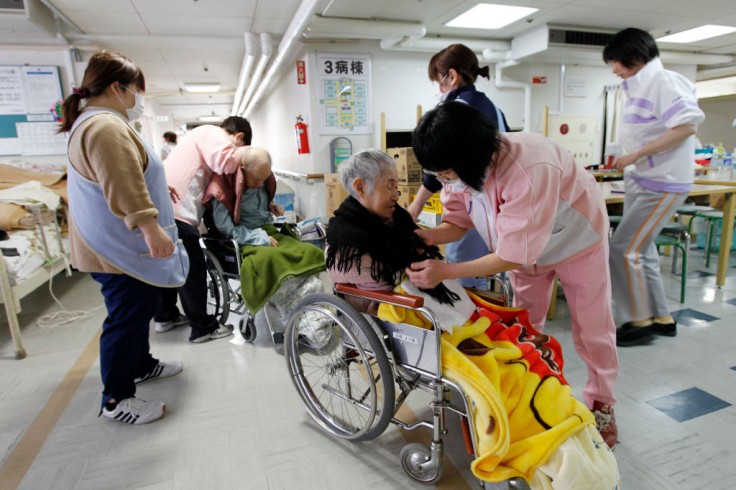
In an unconventional yet heartwarming approach to tackle the increasing concern of elderly loneliness, Japanese nursing homes have introduced toddler employees to brighten the days of senior residents.
Every week, the Ichoan Nursing Home in Kitakyushu sees an unusual sight: toddlers, as young as 18 months, clocking in for their shifts.
These toddler employees, including young Rena Shinohara, aren't there for daycare; they're baby workers.
Their mission is simple yet profound - to bring joy, laughter, and a touch of youthfulness to the nursing home's elderly residents.
A Unique Approach to Combat Elderly Loneliness
Japan faces a significant demographic challenge, with a third of its population aged above 65.
This has led to increased rates of elderly loneliness, especially in an age where multi-generational households are becoming rarer.
In response, Japanese nursing homes have come up with an innovative solution, utilizing baby workers to bridge this generational gap.
Kimie Gondo, the director of the Ichoan Nursing Home, was the visionary behind this unique employment concept.
The epiphany came to Gondo when her own infant granddaughter visited the nursing facility.
Observing the sheer joy and revitalization in the faces of elderly residents upon interacting with a child, she recognized the untapped potential infants had in combating elderly loneliness.
The introduction of baby workers into the Japanese nursing home system wasn't just a whimsical decision.
It was a well-thought-out strategy to emulate the atmosphere of multi-generational homes. The Ichoan Nursing Home, under Gondo's guidance, now proudly employs around 70 baby workers.
Their presence has transformed the environment. Residents, once reticent or isolated, now engage more, their faces lighting up at the sight of these pint-sized employees wandering the hallways.
Beyond Monetary Compensation: Building Bonds and Experiences
What makes this program even more distinctive is the compensation package. These toddler employees do not earn traditional wages.
Instead, their payment comes in the form of diapers, ice cream, and, more importantly, the cherished interactions with the elderly residents.
For Rena Shinohara's mother, this unique employment opportunity presented a dual advantage.
It not only allowed Rena to interact with peers but also facilitated valuable connections with older generations, whom they termed as "great life teachers."
These interactions are invaluable, providing toddlers with early life lessons in empathy, patience, and understanding.
For the residents, on the other hand, interactions with toddler employees offer them a semblance of the familial bonds they miss.
The sight of toddlers, reminiscent of their own grandchildren, evokes cherished memories and creates new ones.
Read Also: Best Buy Recalls Nearly 1 Million Pressure Cookers Over Burn Risks: Here's What You Need to Know
Looking Ahead: The Future of Baby Workers in Nursing Homes
Gondo's requirements for her young recruits are simple. They need to be under the age of three, and it's considered advantageous if they aren't very verbal. The reasoning behind this is poignant.
Many older residents, especially those with cognitive impairments, find it challenging to engage in verbal communication. With toddlers, words become superfluous, allowing for genuine, unspoken connections to form.
The baby worker initiative's success at the Ichoan Nursing Home provides a ray of hope for addressing elderly loneliness in Japan. It showcases the potential for broader applications across the nation.
For parents like Rena's mother, the hope is that their children can continue in this role for as long as possible.
While there may be challenging days, the overall impact on both toddlers and the elderly is overwhelmingly positive, making every moment worth it.